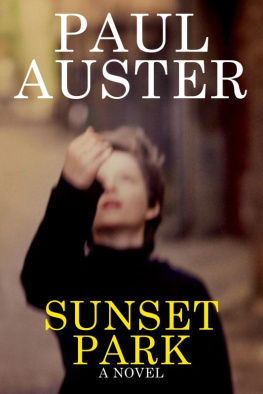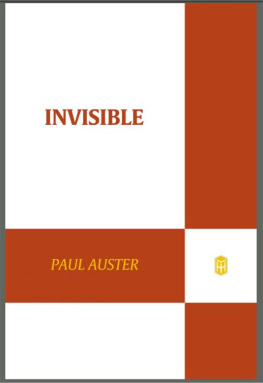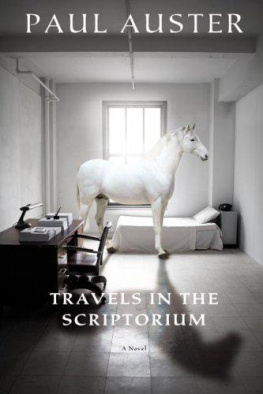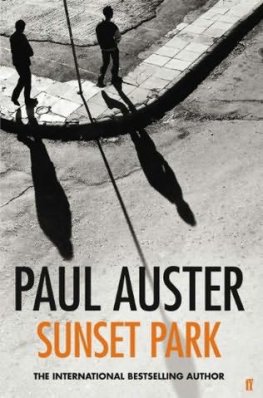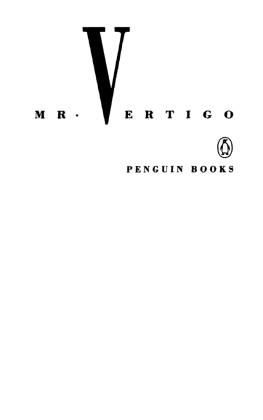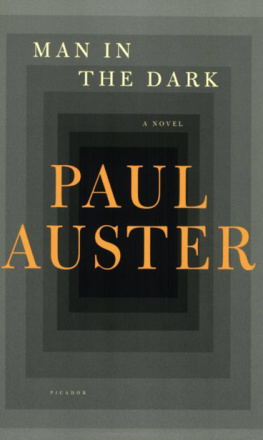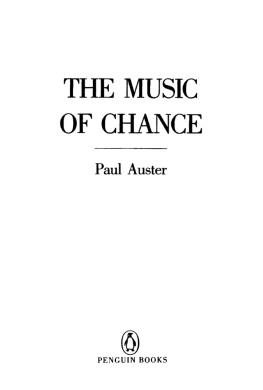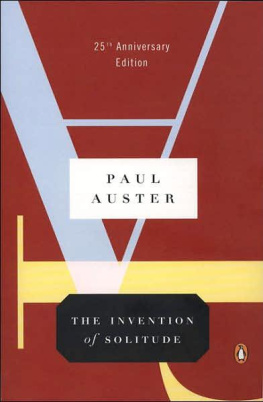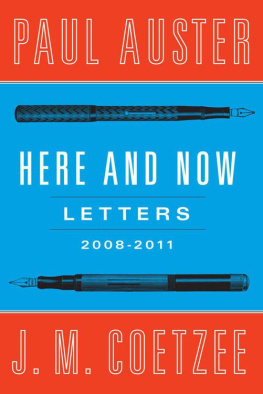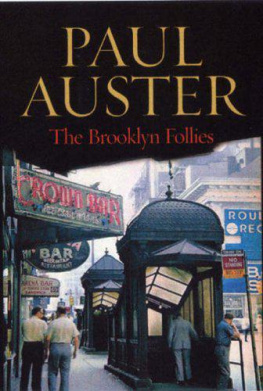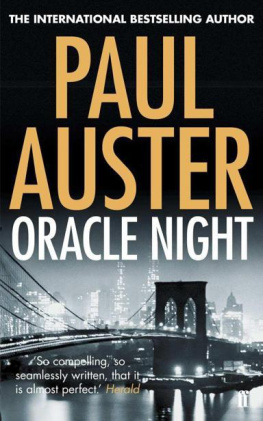Paul Auster - Talking to Strangers
Here you can read online Paul Auster - Talking to Strangers full text of the book (entire story) in english for free. Download pdf and epub, get meaning, cover and reviews about this ebook. year: 2019, publisher: Picador, genre: Art. Description of the work, (preface) as well as reviews are available. Best literature library LitArk.com created for fans of good reading and offers a wide selection of genres:
Romance novel
Science fiction
Adventure
Detective
Science
History
Home and family
Prose
Art
Politics
Computer
Non-fiction
Religion
Business
Children
Humor
Choose a favorite category and find really read worthwhile books. Enjoy immersion in the world of imagination, feel the emotions of the characters or learn something new for yourself, make an fascinating discovery.

- Book:Talking to Strangers
- Author:
- Publisher:Picador
- Genre:
- Year:2019
- Rating:5 / 5
- Favourites:Add to favourites
- Your mark:
- 100
- 1
- 2
- 3
- 4
- 5
Talking to Strangers: summary, description and annotation
We offer to read an annotation, description, summary or preface (depends on what the author of the book "Talking to Strangers" wrote himself). If you haven't found the necessary information about the book — write in the comments, we will try to find it.
Talking to Strangers — read online for free the complete book (whole text) full work
Below is the text of the book, divided by pages. System saving the place of the last page read, allows you to conveniently read the book "Talking to Strangers" online for free, without having to search again every time where you left off. Put a bookmark, and you can go to the page where you finished reading at any time.
Font size:
Interval:
Bookmark:
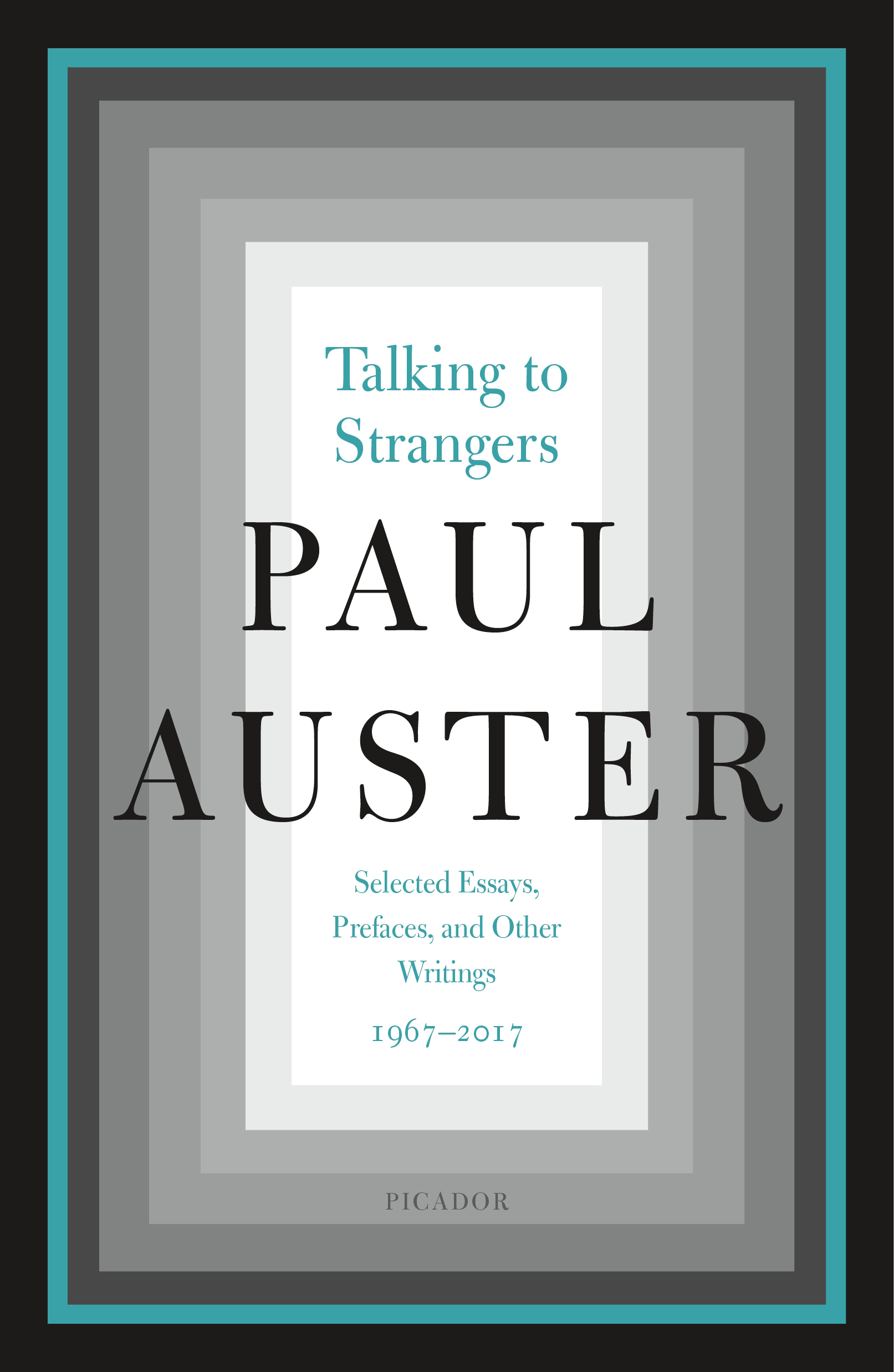

The author and publisher have provided this e-book to you for your personal use only. You may not make this e-book publicly available in any way. Copyright infringement is against the law. If you believe the copy of this e-book you are reading infringes on the authors copyright, please notify the publisher at: us.macmillanusa.com/piracy.
The world is in my head. My body is in the world.
The world is my idea. I am the world. The world is your idea. You are the world. My world and your world are not the same.
There is no world except the human world. (By human I mean everything that can be seen, felt, heard, thought, and imagined.)
The world has no objective existence. It exists only insofar as we are able to perceive it. And our perceptions are necessarily limited. Which means that the world has a limit, that it stops somewhere. But where it stops for me is not necessarily where it stops for you.
No theory of art (if it is possible) can be divorced from a theory of human perception.
But not only are our perceptions limited, language (our means of expressing those perceptions) is also limited.
Language is not experience. It is a means of organizing experience.
What, then, is the experience of language? It gives us the world and takes it away from us. In the same breath.
The fall of man is not a question of sin, transgression, or moral turpitude. It is a question of language conquering experience: the fall of the world into the word, experience descending from the eye to the mouth. A distance of about three inches.
The eye sees the world in flux. The word is an attempt to arrest the flow, to stabilize it. And yet we persist in trying to translate experience into language. Hence poetry, hence the utterances of daily life. This is the faith that prevents universal despairand also causes it.
Art is the mirror of mans wit (Marlowe). The mirror image is aptand breakable. Shatter the mirror and rearrange the pieces. The result will still be a reflection of something. Any combination is possible, any number of pieces may be left out. The only requirement is that at least one fragment remain. In Hamlet, holding the mirror up to nature amounts to the same thing as Marlowes formulationonce the above arguments have been understood. For all things in nature are human, even if nature itself is not. (We could not exist if the world were not our idea.) In other words, no matter what the circumstances (ancient or modern, Classical or Romantic), art is a product of the human mind. (The human mimed.)
Faith in the word is what I call Classical. Doubt in the word is what I call Romantic. The Classicist believes in the future. The Romantic knows that he will be disappointed, that his desires will never be fulfilled. For he believes that the world is ineffable, beyond the grasp of words.
To feel estranged from language is to lose your own body. When words fail you, you dissolve into an image of nothingness. You disappear.
1967
What is important, it seems to me, is not so much to defend a culture whose existence has never kept a man from going hungry, as to extract, from what is called culture, ideas whose compelling force is identical with that of hunger.
ANTONIN ARTAUD
A young man comes to a city. He has no name, no home, no work: he has come to the city to write. He writes. Or, more exactly, he does not write. He starves to the point of death.
The city is Christiania (Oslo); the year is 1890. The young man wanders through the streets: the city is a labyrinth of hunger, and all his days are the same. He writes unsolicited articles for a local paper. He worries about his rent, his disintegrating clothes, the difficulty of finding his next meal. He suffers. He nearly goes mad. He is never more than one step from collapse.
Still, he writes. Now and then he manages to sell an article, to find a temporary reprieve from his misery. But he is too weak to write steadily and can rarely finish the pieces he has begun. Among his abortive works are an essay entitled Crimes of the Future, a philosophical tract on the freedom of the will, an allegory about a bookstore fire (the books are brains), and a play set in the Middle Ages, The Sign of the Cross. The process is inescapable: he must eat in order to write. But if he does not write, he will not eat. And if he cannot eat, he cannot write. He cannot write.
He writes. He does not write. He wanders through the streets of the city. He talks to himself in public. He frightens people away from him. When, by chance, he comes into some money, he gives it away. He is evicted from his room. He eats, and then throws everything up. At one point, he has a brief flirtation with a girl, but nothing comes of it except humiliation. He hungers. He curses the world. He does not die. In the end, for no apparent reason, he signs on board a ship and leaves the city.
These are the bare bones of Knut Hamsuns first novel, Hunger. It is a work devoid of plot, action, andbut for the narratorcharacter. By nineteenth-century standards, it is a work in which nothing happens. The radical subjectivity of the narrator effectively eliminates the basic concerns of the traditional novel. Similar to the heros plan to make an invisible detour when he came to the problem of space and time in one of his essays, Hamsun manages to dispense with historical time, the basic organizing principle of nineteenth-century fiction. He gives us an account only of the heros worst struggles with hunger. Other, less difficult times, in which his hunger has been appeasedeven though they might last as long as a weekare passed off in one or two sentences. Historical time is obliterated in favor of inner duration. With only an arbitrary beginning and an arbitrary ending, the novel faithfully records the vagaries of the narrators mind, following each thought from its mysterious inception through all its meanderings, until it dissipates and the next thought begins. What happens is allowed to happen.
This novel cannot even claim to have a redeeming social value. Although Hunger puts us in the jaws of misery, it offers no analysis of that misery, contains no call to political action. Hamsun, who turned fascist in his old age during the Second World War, never concerned himself with the problems of class injustice, and his narrator-hero, like Dostoyevskys Raskolnikov, is not so much an underdog as a monster of intellectual arrogance. Pity plays no part in Hunger. The hero suffers, but only because he has chosen to suffer. Hamsuns art is such that he rigorously prevents us from feeling any compassion for his character. From the very beginning, it is made clear that the hero need not starve. Solutions exist, if not in the city, then at least in departure. But buoyed by an obsessive, suicidal pride, the young mans actions continually betray a scorn for his own best interests.
I began running so as to punish myself, left street after street behind me, pushed myself on with inward jeers, and screeched silently and furiously at myself whenever I felt like stopping. With the help of these exertions I ended up along Pile Street. When I finally did stop, almost weeping with anger that I couldnt run any farther, my whole body trembled, and I threw myself down on a house stoop. Not so fast! I said. And to torture myself right, I stood up again and forced myself to stand there, laughing at myself and gloating over my own fatigue. Finally, after a few minutes I nodded and so gave myself permission to sit down; however, I chose the most uncomfortable spot on the stoop.
Font size:
Interval:
Bookmark:
Similar books «Talking to Strangers»
Look at similar books to Talking to Strangers. We have selected literature similar in name and meaning in the hope of providing readers with more options to find new, interesting, not yet read works.
Discussion, reviews of the book Talking to Strangers and just readers' own opinions. Leave your comments, write what you think about the work, its meaning or the main characters. Specify what exactly you liked and what you didn't like, and why you think so.

